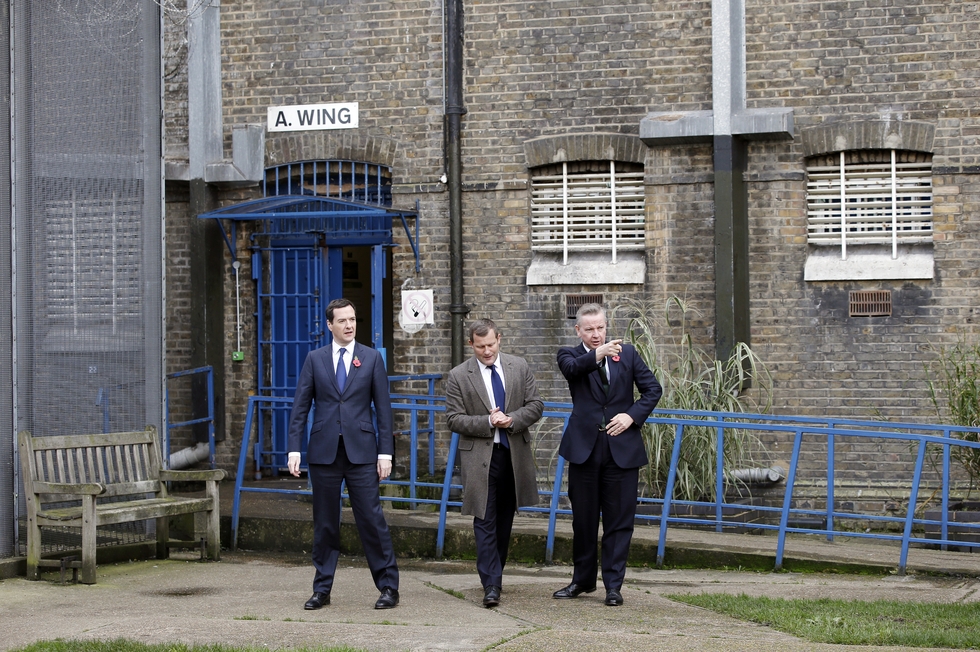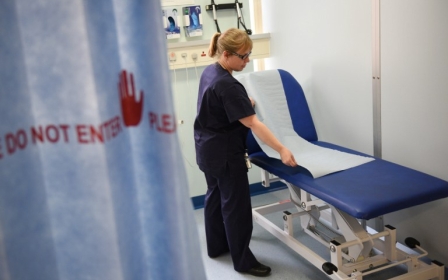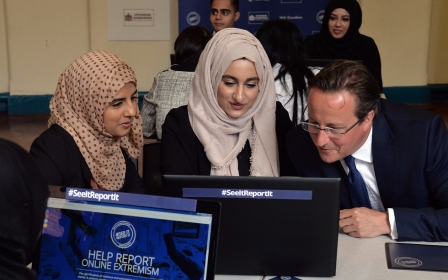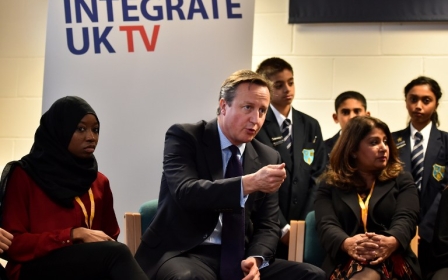UK prisons chief defends Muslim chaplains over 'disgraceful' extremism claims

The head of the UK prison service has rejected speculation that a top Muslim adviser stands to lose his job for recruiting chaplains from the conservative Deobandi denomination as a result of a forthcoming government report into extremism in jails.
Writing to senior prison officials this week, Michael Spurr, the head of the National Management Offenders Service (NOMS), also criticised media reports quoting anonymous government sources suggesting that Deobandi chaplains held views that were “contrary to British values and human rights”.
Spurr highlighted a particular article published by the Sunday Times newspaper on 6 March which said that Ahtsham Ali, NOMS’s Muslim adviser responsible for selecting imams in the prison service, was under scrutiny because 70 percent of chaplains were from Deobandi backgrounds.
“This is inaccurate, misleading and disgraceful coverage,” Spurr wrote in the letter dated Monday seen by Middle East Eye.
Spurr said it was “hardly surprising” that a majority of Muslim chaplains were Deobandis because a majority of Muslims, mosques and seminaries in the UK were linked to the Deobandi tradition, which originated in southeast Asia in the 19th century.
He also said it did not follow that to be a Deobandi was to reject British values, citing a report by school inspectors in which a major Deobandi seminary was commended for promoting respect and tolerance of other faiths and cultures and striving to produce “exemplary British citizens”.
“Our Chaplaincy teams cater for a diverse prisoner congregation, and are enriched by their diverse denominational backgrounds,” he wrote.
British values are a key component of the current government’s campaign to counter so-called non-violent extremism, which critics say risks alienating Muslims who hold conservative religious beliefs.
A report into extremism in prisons commissioned by Justice Secretary Michael Gove last year is due to be published later this month, with an “anonymous senior Whitehall official” quoted by the Sunday Times suggesting that the review would flag up the number of Deobandi chaplains as a cause for concern.
“It is of great concern that the majority of Muslim chaplains in prisons propagate a fundamentalist interpretation of Islamic scripture which is contrary to British values and human rights,” the official said.
Prime Minister David Cameron also indicated last month that the government was considering changes to the chaplaincy system.
In a speech on prison reform, Cameron said that tackling extremism in prisons was a “new front”, and said about 1,000 prisoners had been identified as “extremist or vulnerable to extremism”.
“I want to be clear: I am prepared to consider major changes: from the imams we allow to preach in prison to changing the locations and methods for dealing with prisoners convicted of terrorism offences, if that is what is required,” Cameron said.
In January, the government appointed Peter Clarke, a former counterterrorism police chief who also led an investigation into alleged Islamist extremism in Birmingham schools, as chief inspector of prisons.
Spurr said NOMS was awaiting the outcome of the review of extremism and would "consider carefully its conclusions and recommendations in due course".
But he said that all chaplains had been cleared by counter-terrorism checks and had come through a rigorous recruitment process.
“NOMS is committed to tackling both violent and non-violent extremism, in accordance with Government strategy. Our Muslim Chaplains and Ahtsham Ali play vital roles in this effort,” he wrote.
Spurr also commended Ali’s “characteristic resilience and dignity” and said that he continued to have the confidence and support of the NOMS senior leadership team.
The number of Muslim prisoners in British jails has increased by about three times since the 1990s, with about 200 Muslim chaplains currently working full-time in the prison system.
More than 12,000 Muslim inmates make up about 14 percent of the total prison population, compared with less than five percent of the overall population in England and Wales, according to Ministry of Justice figures published last year.
A report by the interfaith organisation Faith Matters in 2010 described the Muslim prison chaplaincy system as a “best practice model” that had “notably improved” services for Muslim prisoners since its introduction in 2003.
Fiyaz Mughal, Faith Matters’ director, told MEE that the Muslim chaplaincy system in prisons had been a “trail-blazing” service that had been emulated in other sectors, such as healthcare and education.
“If you start to untangle the basis of chaplaincy in the prison service then you are going to have to rip out the wiring in other sectors as well,” he said.
“You are talking about a system that has been heavily implemented and invested in and that is actually helping the most vulnerable and the angriest prisoners.
“In many instances it has been a bulwark providing resilience to prisoners. This is a system that actually works because you are looking eyeball to eyeball at the perpetrator and you are saying, ‘Look, I am here to support you but also to try to change your behaviour’, and that is fundamental to the whole extremism agenda.”
MEE contacted Ahtsham Ali for comment, but he had not responded at the time of publication.
A spokesperson for the Ministry of Justice, which also handles press queries for NOMS, said: “We do not comment on internal NOMS management documents.”
New MEE newsletter: Jerusalem Dispatch
Sign up to get the latest insights and analysis on Israel-Palestine, alongside Turkey Unpacked and other MEE newsletters
Middle East Eye delivers independent and unrivalled coverage and analysis of the Middle East, North Africa and beyond. To learn more about republishing this content and the associated fees, please fill out this form. More about MEE can be found here.




